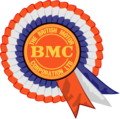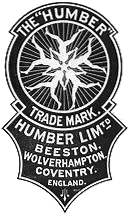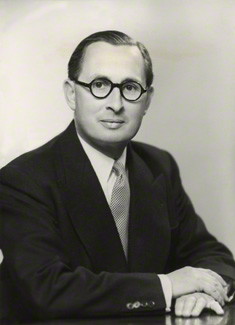Related Research Articles
British Airways (BA) is the flag carrier of the United Kingdom. It is headquartered in London, England, near its main hub at Heathrow Airport.
The General Electric Company (GEC) was a major British industrial conglomerate involved in consumer and defence electronics, communications, and engineering. The company was founded in 1886, was Britain's largest private employer with over 250,000 employees in the 1980s, and at its peak in the 1990s, made profits of over £1 billion a year.

The British Aircraft Corporation (BAC) was a British aircraft manufacturer formed from the government-pressured merger of English Electric Aviation Ltd., Vickers-Armstrongs (Aircraft), the Bristol Aeroplane Company and Hunting Aircraft in 1960. Bristol, English Electric and Vickers became "parents" of BAC with shareholdings of 20%, 40% and 40% respectively. BAC in turn acquired the share capital of their aviation interests and 70% of Hunting Aircraft several months later.

EMI Group Limited was a British transnational conglomerate founded in March 1931 in London. At the time of its break-up in 2012, it was the fourth largest business group and record label conglomerate in the music industry, and was one of the "Big Four" record companies. Its labels included EMI Records, Parlophone, Virgin Records, and Capitol Records, which are now owned by other companies.

The British Motor Corporation Limited (BMC) was a UK-based vehicle manufacturer, formed in early 1952 to give effect to an agreed merger of the Morris and Austin businesses.
British Motor Holdings Limited (BMH) was a British vehicle manufacturing company known until 14 December 1966 as British Motor Corporation Limited (BMC). BMH was created as a holding company following BMC's takeover of both Jaguar Cars and the Pressed Steel Company in that year.

The Transport and General Workers' Union was one of the largest general trade unions in the United Kingdom and Ireland – where it was known as the Amalgamated Transport and General Workers' Union (ATGWU) to differentiate itself from the Irish Transport and General Workers' Union – with 900,000 members. It was founded in 1922 and Ernest Bevin served as its first general secretary.

Caledonian Airways was a wholly private, independent British charter airline formed in April 1961. It began with a single 104-seat Douglas DC-7C leased from the Belgian flag carrier Sabena. Caledonian grew rapidly over the coming years to become the leading transatlantic "affinity group" charter operator by the end of the decade. During that period, passenger numbers grew from just 8,000 in 1961 to 800,000 in 1970. The latter represented 22.7% of all British non-scheduled passengers. It also became Britain's most consistently profitable and financially most secure independent airline of its era, never failing to make a profit in all its ten years of existence. By the end of 1970, Caledonian operated an all-jet fleet consisting of eleven aircraft and provided employment for over 1,000 workers. At that time, its principal activities included group charters between North America, Europe and the Far East using Boeing 707s, and general charter and inclusive tour (IT) activities in Europe utilising One-Elevens.

Lloyds Bank plc is a British retail and commercial bank with branches across England and Wales. It has traditionally been considered one of the "Big Four" clearing banks. Lloyds Bank is the largest retail bank in Britain, and has an extensive network of branches and ATMs in England and Wales and offers 24-hour telephone and online banking services. As of 2012, it had 16 million personal customers and small business accounts.

Humber Limited was a British manufacturer of bicycles, motorcycles, and cars incorporated and listed on the stock exchange in 1887. It took the name "Humber & Co Limited" because of the high reputation of the products of one of the constituent businesses that had belonged to Thomas Humber. A financial reconstruction in 1899 transferred its business to Humber Limited.

British United Airways (BUA) was a private, independent British airline formed as a result of the merger of Airwork Services and Hunting-Clan Air Transport in July 1960, making it the largest wholly private airline based in the United Kingdom at the time. British and Commonwealth Shipping (B&C) was the new airline's main shareholder.

British Lion Films is a film production and distribution company active under several forms since 1919. Originally known as British Lion Film Corporation Ltd, it entered receivership on 1 June 1954. From 29 January 1955 to 1976, the company was known as British Lion Films Ltd, and was a pure distribution company.
(William) Miles Webster Thomas, Baron Thomas DFC, known as Sir Miles Thomas from 1943–1971, was a Welsh businessman. He was Managing Director of the Morris Motors, 1940–1947, Chairman of the British Overseas Airways Corporation, 1949–1956, Chairman of the merger broker Chesham Amalgamations, and President and Chairman of the National Savings Committee.
Nicholas Anthony Howard Szecsi (Stacey), known as Nicholas Stacey, (5 December 1920 – 19 January 1997) was a financial journalist, writer, entrepreneur and patron of the arts.
Sir Neil Stanley Shields, OBE, MC was a British politician and businessman.

Canadian Airways Limited was a Canadian regional passenger and freight air service based in Winnipeg, Manitoba.

British Airways (BA), the United Kingdom's national airline, was formed in 1974 with the merger of the two largest UK airlines, British Overseas Airways Corporation (BOAC) and British European Airways (BEA), and including also two smaller regional airlines, Cambrian Airways and Northeast Airlines. The merger was the completion of a consolidation process started in 1971 with the establishment of the British Airways Board, a body created by the British government to control the operations and finances of BOAC and BEA, which initially continued to exist as separate entities.

Sir Basil Smallpeice, was an English accountant and businessman, who served as a director of several companies, including the state owned airline British Overseas Airways Corporation (BOAC), the shipping company Cunard and the mining based conglomerate Lonrho.
Whitehall SecuritiesCorporationLtd was formed in 1907 by Weetman Pearson MP and his son Harold Pearson MP. Sir Weetman was nominated as President as well as being a founding director. The company was capitalised at £1,000,000. On 12 December 1990 the company name was changed to Pearson Management Services Ltd. The company formed part of what is now the Pearson PLC group of business interests.
Sir Peter Masefield was a leading figure in Britain's post war aviation industry, as Chief Executive of British European Airways in the 1950s, and chairman of the British Airports Authority in the 1960s.
References
- 1 2 3 "The Story of Chesham Amalgamations" (PDF). Retrieved 2007-06-20.
- ↑ "The History Of The British Airways Museum - 1987" . Retrieved 2007-06-20.
- ↑ "Janus: The Papers of Enoch Powell" . Retrieved 2007-06-20.
- ↑ "Britain's Cult of Bigness". Time. 1967-10-27. Archived from the original on July 25, 2005. Retrieved 2007-06-20.